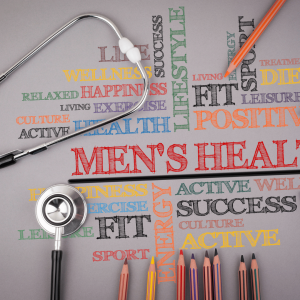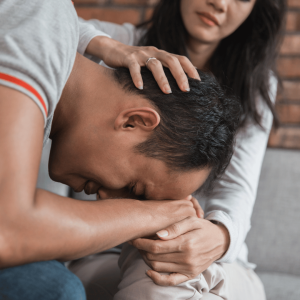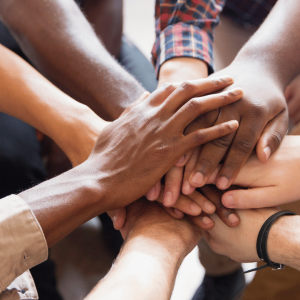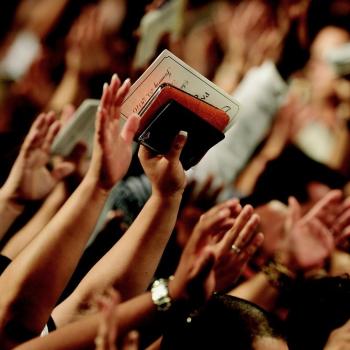
June has been named Men’s Mental Health Awareness Month. And although we would like to suppose that men are always strong, resilient, and able to handle anything without help, the opposite couldn’t be truer. Would you believe me if I told you that among those who succumb to mental disorders, men are more prone to this than women? Statistically speaking, suicide is ranked eighth as the leading cause of death among men, yet men are typically the least likely to seek help.
Where There’s No Problem, There’s No Help
According to the Mayo Clinic, men are more likely than women to commit suicide because they are more likely to use deadlier means, such as firearms. It has been discovered that one of the most prominent risk factors for suicide among men is depression. But, unfortunately, male depression is under-diagnosed, therefore undertreated, because men are less likely to seek help. This is also true because men don’t always develop standard symptoms, such as sadness, but they are more likely to experience fatigue, irritability, sleep disturbances, and a loss of interest in work and hobbies. (Mayo Clinic)
But why is this? Where does this aversion to ask for help come from? Is it because of what they have been taught? What they have been told? Or maybe it’s because of how they’ve been made to feel? Or is it an unhealthy sense of pride? In any case, it is something that should not be ignored nor ridiculed when attempted to address.
Let’s Talk About Pride
It has been a generally accepted idea that men are to exhibit a certain measure of pride. Even at the expense of it being merely a mirage. This pride would entail that they rarely show signs of weakness, if at all. They are encouraged to carry the weight of those around them without even the slightest consideration of stopping at a checkpoint to unload. They shoulder a pride that others uphold for them by not allowing the space for them to be vulnerable in any way. This reinforced sense of pride is especially apparent in male-female relationships. But is it healthy? It is healing? Is it beneficial to the individual or to those around them?
Something that I think we often overlook is how pride doesn’t just reveal itself as arrogance or a hubris directed at others. It can also reveal itself in our reticence to ask for and receive help. Although not written in this particular context, what if when the Bible says “pride goes before destruction,” we look beyond it dealing with only those who aim their ego at others but also those who feign a content disposition? Because either way, if not addressed properly, both can lead to destruction. A destruction that none of us should want to see in the male community and one we should not contribute to. This means that although men may be reluctant to ask for help, they should not be made to feel less masculine when they do.
Even God Has Feelings
When we study Scripture, not only are we informed on who God is, His plan for humanity, His love and kindness, His willingness to forgive, and all the things that make Him God, we are also acquainted with a reactionary trait of Himself that He gave us when He made us in His likeness—feelings.
Several passages in Scripture undeniably show us that God, Himself, has feelings. Exodus 34:13-14 says, “You shall tear down their altars and break their pillars and cut down their Asherim (for you shall worship no other god, for the Lord, whose name is Jealous, is a jealous God).” “A jealous God” indicating that God feels a certain way about and has an attitude toward how we approach Him. And venturing over into the New Testament, we see Jesus, who is God incarnate, do something we don’t often accept from men.
What Would Jesus Do?
In John 11, Mary and Martha’s brother, Lazarus, had fallen ill. They sent word to Jesus about this, but by the time Jesus arrived in Judea, Lazarus had already been buried for four days. The women were displeased with Jesus’ delay. Nonetheless, when Jesus asked where they had laid Lazarus, the women were willing to take Him to see. Even though Jesus, as God, knew when He heard of Lazarus’ illness that He was going to work a miracle that would reveal God’s glory, this didn’t diminish the feelings He had, as a man, toward His friend. When Mary and Martha spoke the words, “Lord, come and see,” Jesus did something shockingly uncharacteristic of men. He wept.

Real Men Cry
If there is an example of a real man anywhere in the world greater than Jesus, we all need to meet him immediately. But since there can and will only ever be one Jesus, it may benefit us, as a society, to retire the idea that real men don’t cry. In fact, Jesus, a perfect man, whose emotions, logic, reason, and thoughts were free from error, did indeed, cry. And not only did He cry once, John 11:38 says that Jesus was deeply moved again going to the tomb of Lazarus.
Jesus is the ultimate example of someone we all should pattern our lives after. And if this man that we look to as the guide for all things could show emotion, who are we to say that men cannot? Jesus came to earth as a man. Jesus is God. And Jesus showed emotion. He shows emotion in how He loves us and most importantly, He showed emotion in how He died for us.
What Can We Do?
As we approach the consummation of Men’s Mental Health Month, it would be advantageous for us to ask what we can do to help move the needle in a healthy direction for men and their mental health. How can we, especially women, aid in contributing to men working toward wholeness in their minds? What can we do, as a society, to ensure that men are valuable contributors, not just in body, but mind and spirit also?
1. Just Start
One approach to nurturing the mental health of men is to simply acknowledge that it matters. Because women are said to be “emotional” and “hormonal” beings, we are more inclined to receive empathy with regard to our mental health. We are deemed the weaker vessel, therefore, implicitly requiring mental health attentiveness. But what we sometimes fail to consider is that men grow tired, weary, and can have moments (or even seasons) where they are just bogged down by life. By acknowledging this, not only will we create a culture where men can open up to truly get to know themselves, they will have the space to become a better version of themselves. A version that not only benefits the men of our world but our world at large.
2. Remove Bias
Another positive approach to this would be to abandon the all men stereotype. When we are exposed to people in certain environments or who exhibit certain behaviors, we tend to form mass generalizations about all persons associated with that particular group of people. This causes us to form biases about those we may not even know. It also shapes how we treat those we may not know. By removing bias and dealing with one another on an individual basis, we will learn the way of Christ in seeing people’s hearts. And by seeing the hearts of others, we will have better insight into how they receive and give love. This love, for men, may look like being able to have moments of weakness and vulnerability in a safe space.
3. Apply Scripture Correctly
The Bible is full of verses that we can apply to any situation we may face in life. And if we’re honest, most of the battles and struggles we contend with are fought in our minds. However, as we read these Bible verses, do we always apply them the way we should? Do we let God’s Word direct itself or do we determine the direction in which it should be aimed? When we read 1 Peter 5:7, it says, “casting all your anxieties on Him, because He cares for you.” Galatians 6:2 reads, “Bear one another’s burdens, and so fulfill the law of Christ.” And in 2 Corinthians 12:9, Jesus said “My grace is sufficient for you, for My power is made perfect in weakness.”
When Scripture was written, it wasn’t written to include women only when it spoke of weaknesses, burdens, worries, doubts, and fears. God knew that all of humanity would experience these moments. He knew that we would need His Word and each other to help carry the loads that we so often bear. If we never faced anything hard or mentally taxing, God would not have addressed it in His Word. If we never needed comforting, He would not have left His Holy Spirit here with us as a comforter for those times. And just as the Spirit helps us to deal with these mental stressors, we should see Him as an example for how to comfort one another, men included.

Let’s Just Do Better
If we did better to apply God’s Word to our lives and let it guide how we viewed men’s mental health and emotional well-being, we would see that God cares for us all just the same. He wants us all to be full of His joy so that we can enjoy life in a place of wholeness. Embracing this mindset, regardless of gender, will help us to better steward the minds of those who are most often overlooked but greatly depended upon. Because, let’s be honest, we cannot expect a world filled with better men if we continue to ask them to carry cargo that we never allow them to unload.

















